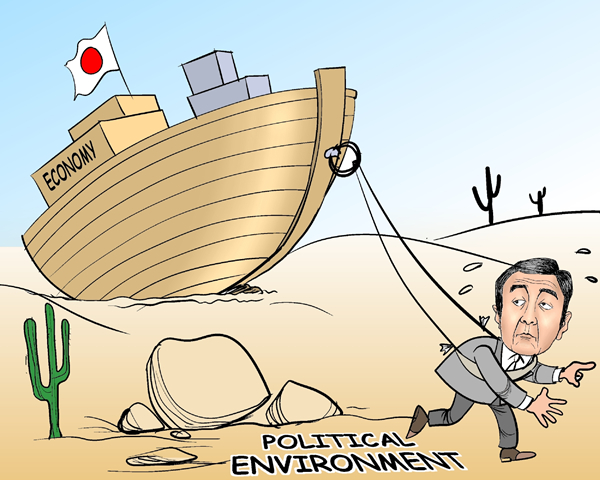Japan's recognition of history must for peaceful China-Japan ties
Japan's diplomatic double-dealing has reached a new level since the start of this month.
On Aug. 2, in Sao Paulo of Brazil, Japanese Prime Minister Shinzo Abe reiterated his hope of meeting Chinese President Xi Jinping in November at the Asia-Pacific Economic Cooperation (APEC) in Beijing.
Abe's statement was sandwiched between two political maneuvers. On Aug.1, the Japanese government "gave names" to 158 islets, including five affiliated to China's Diaoyu Islands in the East China Sea. On Aug. 5, a defense white paper highlighted what was claimed to be a lack of transparency from China on military matters.
|
[By Jiao Haiyang/China.org.cn] |
The seemingly self-contradictory strategy highlights two realities: International and domestic pressure is mounting for better Japan-China ties; Abe and his rightist cronies are unlikely to change their stance.
Abe's gesture is pure expediency: his government faces multiple economic and diplomatic challenges with limited financial tools to pump up the economy.
Japan's GDP in the second quarter shrank 6.8 percent from a year earlier, the slowest pace since the Fukushima tsunami in March 2011, mainly due to a consumption tax increase in April.
To cut the budget deficit and restore fiscal health, Japan will very likely raise the consumption tax again, by a further 2 percent, next year. Support for Abe's cabinet was only about 45 percent in the latest poll, down from a 76 percent peak in April 2013.


